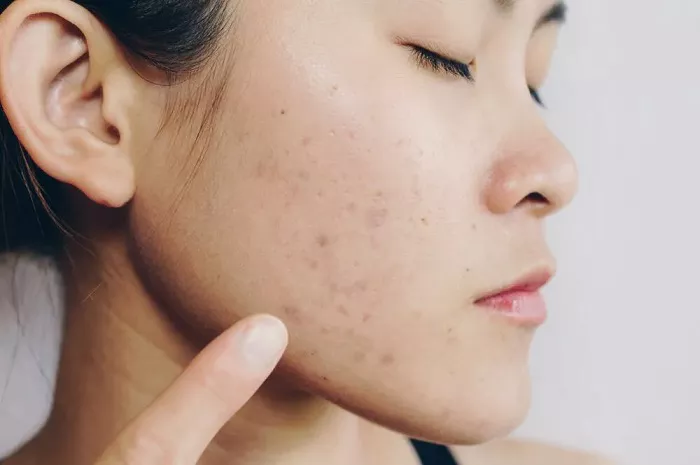An even skin tone refers to skin that is uniform in color, smooth in texture, and free from discoloration such as dark spots, redness, or blotchiness. This concept is often associated with healthy, youthful skin. People of all skin types and tones desire a balanced complexion because it enhances confidence and reflects overall well-being. While it’s completely natural for skin to have slight variations, significant unevenness can result from many factors including sun exposure, hormonal changes, acne scars, or certain skin conditions.
Even skin tone isn’t just a cosmetic goal—it often signals that the skin’s barrier is functioning well. A strong skin barrier protects against environmental stressors and locks in moisture. When skin tone is uneven, it may suggest underlying issues such as inflammation or damage, requiring attention and care. Striving for a more even tone should be seen as part of a larger commitment to skin health, rather than just aesthetic improvement.
What Causes Uneven Skin Tone?
Uneven skin tone can arise from a variety of internal and external influences. Sun exposure is one of the most common causes. Ultraviolet (UV) rays stimulate melanin production, leading to dark patches or hyperpigmentation. Without proper sun protection, these spots can become more pronounced over time. Hormonal fluctuations, especially during pregnancy or due to conditions like polycystic ovary syndrome (PCOS), can also lead to melasma—a specific type of pigmentation.
Post-inflammatory hyperpigmentation (PIH) is another widespread issue. This happens when skin reacts to injury or inflammation, such as acne, eczema, or bug bites, by producing excess pigment in the healing process. Additionally, lifestyle factors such as lack of sleep, smoking, poor diet, and stress can impair skin repair and regeneration, leading to dull, uneven skin. Genetics and aging further influence how skin tone develops over time.
How Can Skincare Help Improve Skin Tone?
Daily skincare plays a vital role in promoting an even complexion. Cleansing removes dirt, oil, and impurities that can dull the skin and contribute to breakouts. Gentle exfoliation with products containing alpha hydroxy acids (AHAs) or beta hydroxy acids (BHAs) can help slough off dead skin cells and reveal a brighter layer underneath. These acids encourage cell turnover, which reduces the appearance of dark spots over time.
Moisturizing is essential for maintaining skin barrier function. Dry, irritated skin is more prone to discoloration and scarring. Look for moisturizers with ingredients like hyaluronic acid or ceramides to hydrate and soothe the skin. Sunscreen is perhaps the most important product in a skincare routine aimed at evening out skin tone. A broad-spectrum SPF protects against the UV rays that worsen pigmentation. Daily use is non-negotiable, even on cloudy days or indoors.
Which Ingredients Are Best for Brightening?
Several ingredients are especially effective for improving skin tone. Vitamin C is one of the most well-known. As a powerful antioxidant, it neutralizes free radicals and inhibits melanin production. Regular use of a vitamin C serum can brighten the complexion and fade dark spots. Niacinamide, a form of vitamin B3, reduces inflammation and improves skin elasticity while minimizing blotchiness and hyperpigmentation.
Azelaic acid is another gentle yet effective option for fading discoloration, especially for those with sensitive skin. Kojic acid and licorice root extract naturally lighten pigmentation by interfering with melanin production. Retinoids, derived from vitamin A, accelerate cell turnover and stimulate collagen production. However, they should be used carefully to avoid irritation. Always follow product instructions and consider patch-testing new ingredients to ensure skin compatibility.
Can Lifestyle Changes Make a Difference?
Yes, your lifestyle has a profound impact on your skin’s tone and health. Adequate hydration keeps skin plump and vibrant. Drinking water throughout the day supports cellular function and helps flush out toxins that can contribute to dullness. A diet rich in fruits, vegetables, lean protein, and healthy fats supplies the vitamins and antioxidants needed for skin repair. Vitamin E, zinc, and omega-3 fatty acids are particularly beneficial.
Getting enough sleep allows the body to heal and regenerate. Skin repairs itself at night, so consistent rest is critical. Reducing stress through mindfulness, exercise, or hobbies helps regulate hormones that can otherwise affect the skin. Limiting alcohol and avoiding smoking also protect the skin from premature aging and discoloration. These habits not only promote a more even skin tone but enhance overall health and vitality.
How Can You Use Makeup Without Worsening Uneven Skin?
Makeup can help mask uneven skin tone, but choosing the right products is key to preventing further irritation or clogged pores. Always start with clean, moisturized skin. Using a primer helps create a smooth base and keeps foundation from settling into lines or dry patches. Opt for foundations and concealers that are non-comedogenic and match your skin’s undertone.
Color correctors can neutralize specific discolorations. For example, peach or orange correctors help with dark circles, while green tones reduce redness. However, makeup should complement skincare—not replace it. Remove it thoroughly at the end of the day to avoid buildup that could cause breakouts or irritation. Over time, with consistent skincare, you may find yourself needing less makeup to achieve a glowing look.
Are There Professional Treatments That Help?
For persistent uneven skin tone, professional treatments may offer faster results. Chemical peels use acids to exfoliate and resurface the skin, improving texture and fading dark spots. Microdermabrasion is another form of exfoliation that removes dead skin cells and encourages cell turnover. Laser treatments, such as intense pulsed light (IPL) or fractional lasers, target pigmentation directly and can be highly effective when performed by trained professionals.
Microneedling creates tiny injuries in the skin that trigger collagen production and healing, which can improve texture and tone over time. Prescription-strength creams containing hydroquinone or tretinoin are also options for certain types of discoloration. Always consult a dermatologist to determine which treatments are safe and appropriate for your skin type and concerns. Combining professional care with daily skincare creates a comprehensive approach to even skin tone.
What Role Does Sun Protection Play?
Sun protection is not just an accessory in the pursuit of even skin tone—it is foundational. Without daily use of sunscreen, all efforts to reduce discoloration may be in vain. UV rays stimulate melanin production and cause existing dark spots to darken. Repeated exposure can also cause redness, inflammation, and long-term skin damage.
Choose a broad-spectrum sunscreen with at least SPF 30. Reapply every two hours when outdoors, and wear protective clothing, hats, and sunglasses. Tinted sunscreens can offer additional protection by including iron oxides, which block visible light that also contributes to pigmentation. Consistent sun protection prevents future discoloration and supports a clearer, more uniform complexion.
How Long Does It Take to See Results?
Improving skin tone takes patience and consistency. Most over-the-counter skincare products require at least 4 to 8 weeks of regular use to show visible changes. Professional treatments may deliver quicker results, but they also require follow-up care and protection. The key is maintaining a routine and avoiding products or habits that worsen skin conditions.
Tracking your progress through photos can be helpful. Look for signs of reduced blotchiness, smoother texture, and a brighter overall tone. It’s important not to expect perfection—skin is a living organ and will naturally vary. Instead, focus on achieving balance, radiance, and health. With time, a well-rounded approach will deliver satisfying, long-term benefits.
Why Is Even Skin Tone a Sign of Healthy Skin?
A clear and consistent skin tone is more than just a cosmetic goal—it often reflects internal balance and effective skin function. Healthy skin regenerates efficiently, protects against irritants, and retains moisture. When skin is supported with the right care, it responds with resilience and clarity.
Achieving an even skin tone is not about eliminating every freckle or spot, but about helping the skin be its best self. Through proper skincare, smart sun protection, healthy habits, and, if needed, professional treatments, anyone can work toward skin that looks and feels vibrant. In doing so, you’re not only improving appearance but investing in long-term health and self-confidence.
Related Topics

































